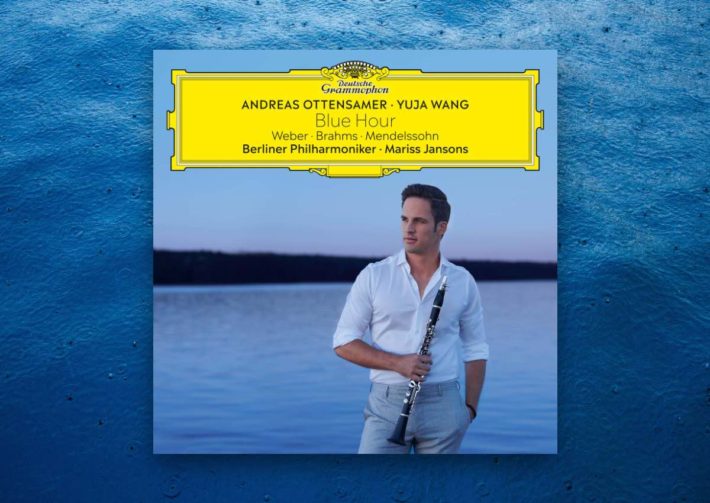Weber’s Clarinet Concerto heard here is taken from a single concert, part of a 2017 subscription series. According to the Berlin Philharmonic’s archives, the concert was was the first complete performance of the Concerto for this orchestra since 1938, making it something of an occasion.

Occasion it certainly is. Andreas Ottensamer, the orchestra’s principal clarinetist, brings such a velvety tone on all registers, his first entrance after the short orchestra introduction sounds almost seductive. It’s a big-sound performance, with the Berlin Philharmonic in its full form, making the large, deep strings sound familiar to anyone acquainted with this ensemble’s many classic recordings.
Ottensamer makes perfect sense of the compact, classically built first movement (adding small cadenzas to allow the orchestra entrances sound more effective). The slow movement is the highlight of this performance, with the orchestra accompaniment lovingly supportive and allowing the soloist to play with the utmost sensitivity. This movement was also the highlight of Martin Fröst’s 2006 version, but with a smaller, leaner strings support. Here it has some old-fashioned sound one can hear from this orchestra in Deutsche Grammophon’s recordings from the early 1960s. It’s a pleasure realizing it has not gone away after so many years and chief conductors.
With the third movement, Ottensamer brings a 19th-century ball-room fun, with playfulness and charm Jansons and the Berliners are eager to join, and some lovely minor section, which brings out superb solo playing from other woodwind players of the group (2:07 onward).
The live recording has its pros and cons, treating us with enthusiasm and on-the-spot spontaneity, but also catches the soloist’s air going out of the instrument’s mouthpiece, and the intricate work of a soloist on a large, resonant hall like the Philharmonie can make some entrances sound a split-second off, which they probably didn’t to the audience experiencing the concert. Nonetheless, a fine version indeed, to stand among other distinctive versions by Fröst, Collins and the more recent Sévère. Fans of this concerto will also want to hear classic versions by Emma Johnson, Sabine Meyer and Sharon Kam (the latter the most similar in approach to the current version, partly due to the large-orchestra joining the effort).
Duo Fillers with Yuja Wang
The rest of the album is a result of a single recording studio session, the centerpiece of which is the “Grand Duo Concertant” Op. 48, a clarinet and piano sonata in all but name. Both Ottensamer and Wang prove again to be highly capable chamber musicians; as Ottensamer showed in a recent album reviewed here, playing Khachaturian’s clarinet trio, and Wang while playing Brahms’ Violin Sonatas with Leonidas Kavakos a few years back. Wang can be a capricious partner, especially in the solo breakthroughs in the first movement, but the slow movement again show both artists as serene as it gets, and a multilayered third movement finishes off a nice version of this not-too-often heard piece. Once again, Raphaël Sévère’s recent survey (also added to the first concerto), is a comparable version, with a tad broader approach, and Sharon Kam is persuasive if more edgy on her version with Itamar Golan.
The fillers are transcriptions – of 7 songs without words by Mendelssohn and of two pieces by Brahms, all but one transcribed to clarinet and piano by Ottensamer. The Mendelssohn pieces work very well, not only for the sincerity of the transcription but also for the heartfelt performance (wang is known to give some of the Lieder ohne Worte as encores on her concerts). The recording quality of the chamber works is excellent, but the opening act – transcription of one of Brahms’ Op. 118 pieces, seems like a strange prelude. Many will prefer skipping directly to the larger sized concerto.

Album Details |
|
|---|---|
| Album name | Blue Hour – Weber, Brahms, Mendelssohn |
| Label | Deutsche Grammophon |
| Catalogue No. | 4836069 |
| Artists | Andreas Ottensamer (clarinet); Yuja Wang (piano) |



















